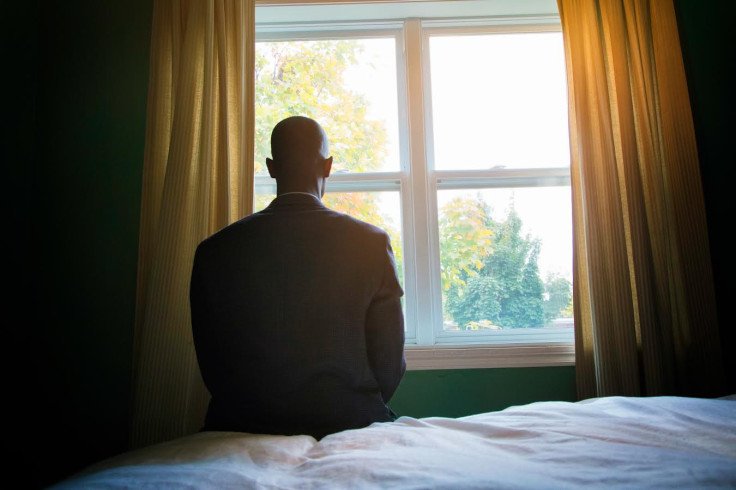International Men's Day: Some issues affect men more than women - why is that hard to accept?
From suicide to homelessness, there are vulnerable men who need help, but don't feel they can ask for it.

Since 2008, Parliament has held several debates to recognise International Women's Day in both the Commons and the Lords. Yet it was only last year that saw the first International Men's Day debate in Westminster hall, and only this year that the main Commons chamber hosted it.
Some people have said that every day is International Men's Day in Parliament because there are so many men there, but there is a huge difference between men raising issues and the raising of men's issues – we might get lots of the former, but we seldom get the latter.
In 2012, over 4,500 men felt they had no choice but to take their own lives. In 2013 the figure was nearly 5,000 men. In 2014, it was 4,630 men. In fact 75% of all suicides that year were committed by men – this is such a tragedy, and yet this issue is hardly considered in parliament.
Over the last 30 years there have been 134,554 men who have taken their own lives in the UK.
A poll commissioned by Calm (Campaign Against Living Miserably) found that four in 10 men (42%) had considered suicide, with two fifths (41%) never talking to anyone about their problems. Yet beside this evidence there is little research into tackling the issue and existing research is gender-neutered, despite the disproportionate way this issue targets men. If this was something that affected women in such an obvious way I can't help but feel this issue would be a higher priority.
In some areas, men are fighting to get any of the budget where something is deemed to be a predominantly female problem – such as domestic violence. The Crime Survey England and Wales estimates that 8.2% of women and 4.0% of men reported experiencing any type of domestic abuse in the last year, that there were 6.5% of women and 2.8% of men who reported having experienced any type of partner abuse in the last year and that overall, 27.1% of women and 13.2% of men had experienced any domestic abuse since the age of 16.
In other words, for every three victims of domestic abuse, two will be female, one will be male.
Despite this, the split of funding for victims is nowhere near appropriate. In the UK, 20 organisations offer refuge or safe house provision for male victims. This is a total of 82 spaces, of which 24 are dedicated to male domestic violence victims. For female victims there are nearly 400 specialist domestic violence organisations providing refuge accommodation in the UK with over 4,000 spaces for over 7,000 women and children.
While, unfortunately, I doubt there are enough spaces to accommodate all the female victims, it is unbelievable that despite making one third of all victim cases, there are only 24 male spaces of refuge in the UK. And still the Government is announcing funding just for female victims. It cannot be right that male victims are completely overlooked – especially if we believe in gender equality.
Linked to the low number of refuge spaces available to men, homelessness is a growing issue. Reporting on the demographics of rough sleepers in Greater London, in their 2015/16 report St Mungo's states that 8,096 people were seen sleeping rough last year, of whom 85% were male. Yet still women make up the largest number of those accepted as homeless by local authorities and thus are more likely to receive assistance.
Finally, an issue that rarely gets mentioned is the problem fathers face simply trying to play their part in their children's upbringing.
I think we underestimate the effect on fathers of having to battle to see their children and facing the inevitable likelihood that they will come off worse simply because of their sex.
When you think about it, in so many ways, considering men and women separately – as if they live in complete isolation to each other – is actually ridiculous. Neither group is isolated. Both sexes have mothers and fathers, sisters and brothers, sons and daughters, husbands and wives, so for every woman there are related male parties and therefore a vested interest in men's issues. It is an unavoidable fact.
The fact is, there are some issues which affect men solely or more than women and vice-versa, but both men AND women have an interest in those issues in reality, and working together to solve them must be the best way forward.
International Men's Day at least means for one day of the year these issues get the publicity they deserve.
Philip Davies is the Conservative MP for Shipley
© Copyright IBTimes 2025. All rights reserved.




















